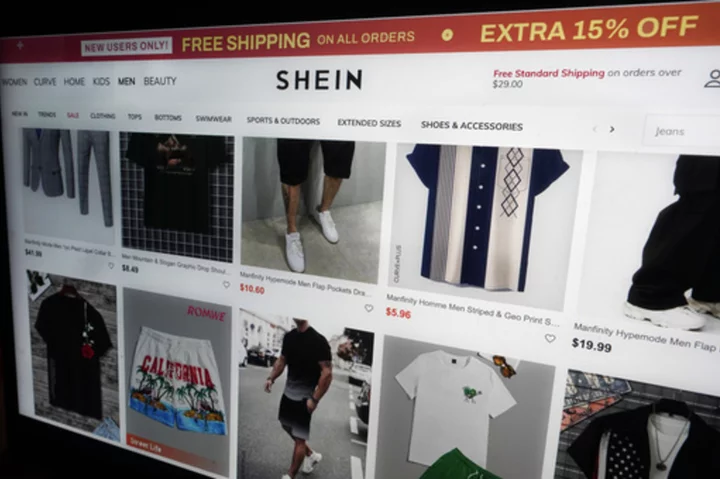NEW YORK (AP) — Fast fashion retailers Shein and Forever 21 are going into business together.
Under a partnership agreement announced Thursday, the Chinese-founded Shein will acquire about one-third interest in Sparc Group, Forever 21's operator. Sparc will also become a minority shareholder in Shein.
The deal is expected to expand Forever 21's distribution on Shein's global e-commerce platform, which has attracted 150 million online users. In turn, the partnership “also offers the opportunity to test” Shein product sales and returns in physical Forever 21 stores across the U.S., the companies said in a joint release.
Forever 21 has more than 540 locations worldwide and online. The announcement did not disclose financial details of the deal.
The Wall Street Journal first reported the deal between Shein and Sparc Thursday.
Sparc is a joint venture that includes brand development company Authentic Brands Group and mall operator Simon Property Group. Beyond the U.S.-based Forever 21 — which was bought out of bankruptcy just three years ago — Sparc also manufactures and distributes apparel for brands like Aéropostale, Eddie Bauer and Reebook.
Shein and Forever 21 have both faced strong criticism around the environmental impact of their fast fashion production and allegations of unethical labor practices. Earlier this year, Shein was notably accused of copyright infringement. There’s also been ongoing concerns among some lawmakers and advocacy groups about its supply chains.
In May, a bipartisan group of two dozen lawmakers asked the Securities and Exchange Commission to put the brakes on an initial public offering by Shein until it verified that it does not use forced labor from the country’s predominantly Muslim Uyghur population. A June Congressional report also unloaded a blistering critique of Shein and another Chinese fashion retailer, Temu.
The report is part of an ongoing Congressional investigation into products offered to American consumers that could be made with forced labor in China. As part of the probe, the committee sent letters in early May to brands Nike and Adidas, as well as Shein and Temu asking for information about their compliance with the anti-forced labor law.
At the time, Shein said that the company’s “policy is to comply with the customs and import laws of the countries in which we operate.” It also said it has “zero tolerance” for forced labor and has implemented a robust system to ensure compliance with U.S. law.
Shein, which is now headquarted in Singapore, has tried to distance itself from China in recent years. According to The Journal, Shein doesn't sell goods in China and denies sourcing cotton from the country.

